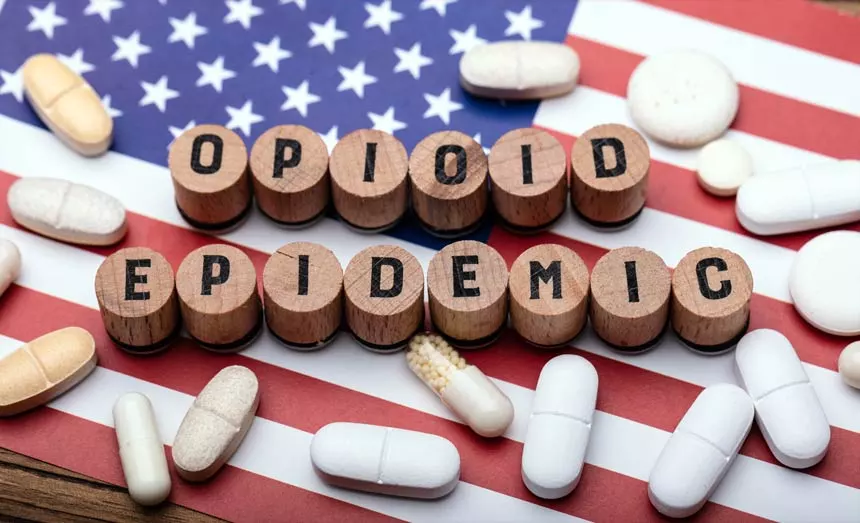Finding Rehabs in Texas
Table of Contents
- Finding Rehabs in Texas
- Substance Abuse in Texas: An Overview
- Gaining Admission to Texas Drug Rehab and Texas Alcohol Rehab Centers
- The Clear Need for Alcohol Rehabs in Texas
- Alcohol Abuse In Texas
- The Opioid Epidemic In Texas
- Treating Opioid Abuse in Texas as a Priority
- Addiction Treatment Programs at Texas Rehab Centers
- The Rise of Meth Addiction in Texas
- Finding Inpatient Texas Drug and Alcohol Rehab Centers
- Dual Diagnosis Treatment Centers in Texas
- Seeking Out a Texas Rehab Center
- How Long is the Addiction Treatment Process?
- Finding Texas Addiction Treatment That Works
- What is a Texas Rehab like?
- What are the 5 Levels of Care for Drug and Alcohol Addiction?
- Should You Stay in or Go to Texas for Addiction Treatment?
- How Much Do Rehabs Cost in Texas?
- Does Insurance Pay for Drug and Alcohol Rehabs in Texas?
- Finding Free Rehabs in Texas
- Court-Ordered Addiction Treatment in Texas
- Find a Texas Rehab: from San Antonio Rehabs to Austin Treatment Centers
- Get Expert Assistance in Choosing the Right Rehab in Texas
Addiction and substance use disorders of any kind can have a heavy impact on your relationships, finances, job, and health, so don’t put off dealing with these issues.
If you or a loved one is struggling with addiction, there is help available, and you can begin the path to recovery right now. Finding the right fit among all the Texas rehab centers can help you get there!
Drug and alcohol addiction treatment centers in Texas provide a variety of programs to assist you or a loved one in becoming sober, beginning recovery and providing tools to continue recovery following treatment.
Texas alcohol and drug rehab centers range from basic city locations to more remote, luxury rehab facilities. Read our guide to find the most effective types of treatment for you or your loved one now, no matter where you reside in the Lone Star State!
Substance Abuse in Texas: An Overview

Texas is one of the largest states in the U.S., with a recorded population of around 28.64 million people as of 2020. According to the 2018 Substance Use Disorder Landscape report, 8 out of every 100 Texas citizens suffer from substance abuse.
Amongst these cases, cannabis, heroin, and methamphetamine were among the most regularly misused substances, although crack cocaine, synthetic cannabinoids, and fentanyl also posed a significant threat. Unfortunately, heroin is just one of several abused substances that contribute to Texas’s overall drug abuse problem. This is why individuals seeking professional assistance have a variety of options when researching accessible alcohol and drug treatment programs in Texas.
Ultimately, however, the position of Texas’s most often abused substance has been long-held by alcohol.
While the majority of patients who joined a Texas inpatient drug or alcohol rehab program were seeking treatment for alcohol misuse, opioid abuse was close behind.
Gaining Admission to Texas Drug Rehab and Texas Alcohol Rehab Centers
The following gives a breakdown of substances of choice indicated by those admitted to publicly sponsored treatment facilities in Texas in 2013:
- Alcohol (28%)
- Opioids (24%)
- Marijuana (23%)
- Methamphetamines (13%)
- Cocaine (11%)
The Clear Need for Alcohol Rehabs in Texas

Even with the spread of meth to all corners of the Lone Star State, alcohol remains the substance of concern for most Texans. According to a survey on Texas alcohol and drug use, even among high school students, alcohol remains the most commonly misused intoxicant.
Texas also has one of the highest rates of drunk-driving fatalities in the country. In 2017, driving under the influence accounted for 38% of all traffic fatalities. Among all substance abuse categories, alcohol continues to provide the primary reason for admittance to treatment facilities in Texas.
With the prevalence of problem drinking and alcohol use disorders in the state, the need for effective alcohol treatment programs has never been greater in Texas.
Alcohol Abuse In Texas
Despite rising rates of methamphetamine consumption in Texas, alcohol remains the state’s most often abused narcotic. Currently, it has one of the highest rates of drunk-driving fatalities in the country, making up 38% of all traffic-related deaths nationwide in 2017.
According to a survey on Texas drug and alcohol addiction trends, excessive drinking leads to 6,514 deaths each year in Texas, with 18.9% of adults and 23.5% of high school students reporting abusing alcohol in 2011.
The use of excessive amounts of alcohol in a single session, known as binge drinking, is of particular concern among younger age groups. This behavior is defined as drinking more than four drinks in a brief period of time (usually two hours).
The Opioid Epidemic In Texas
Although the opioid epidemic may not have been as well publicized in Texas as in other parts of the country, it has also impacted the state greatly.
For dealers and users alike, it is becoming more popular to mix heroin with fentanyl, a synthetic opioid that’s 50 to 100 times stronger than morphine and a key cause of the country’s recent surge in opioid overdose deaths. With the black tar heroin from Mexico being widely available in Texas, it is only a matter of time until it begins to be cut with fentanyl as it has in other parts of the country.
Rehab centers in Texas are aware of the need for medical detox and medication-assisted treatment in cases of opioid use disorders, and whether black tar or fentanyl is the substance of choice, a quality treatment program will assess your needs or the needs of your loved one and make the detox experience as comfortable as possible.
Treating Opioid Abuse in Texas as a Priority
While Texas has not had the same experience with the overdose epidemic as other states, research from the University of Texas suggests that this is due in part to the types of narcotics that are most easily available in the area.
However, despite the Lone Star state’s lower-than-average opioid-related deaths, Texas still remains impacted by the opioid epidemic. In 2016 alone, opioids were prescribed to every 57.6 per 100 persons seeking pain-relief medication, compared to the national rate of 66.5 per 100 persons.
Because of the increasing number of opioid prescriptions, these painkillers are becoming more freely accessible in communities across the state. With this rise in availability, Texas recorded a 7.4 percent spike in overdose deaths in 2016, the deadliest year on record for the opioid crisis.
In terms of other prescription drugs of abuse, recent years have seen rising demand for Adderall addiction and rehab facilities, particularly among the college-age population of the State. Despite the legality of these drugs, growing numbers of students have begun to misuse stimulant drugs, and the pandemic has also driven higher cases of anxiety medication misuse.
Texas Combats The Opioid Epidemic
In May of 2017, Texas received more than $280 million in federal funding to battle the opioid epidemic, according to the Texas Health and Human Services Commission. Funds, of which were used to cover the costs of state health services for residents struggling with opioid abuse.
Texas citizens with this specific substance use disorder received financial assistance in several ways with these grants, including:
- Increased access to opioid addiction treatment programs across the state.
- Increasing opioid prescriber and provider training and technical assistance.
- Improving recovery services and peer-to-peer support groups.
- Increasing outreach activities with state agency partners, crisis teams, outreach workers, and peer re-entry programs.
In addition to state efforts to increase access to and availability of substance abuse treatment programs and services, Texas has also prioritized concentrating on the populations most vulnerable to opioid use disorder, such as:
- Veterans
- Individuals with chronic pain
- Pregnant women
- Those with a history of prescription drug misuse
- Those living in big metropolitan areas or rural areas with a high rate of opioid abuse
Addiction Treatment Programs at Texas Rehab Centers

Texas Intervention Services
In Texas as in states across the country, a skilled interventionist can help bridge the gap between a concerned family and a loved one who needs assistance.
Although not needed in all cases of someone seeking addiction treatment, for those in a state of denial about their substance abuse, it can be a valuable way of getting across the concerns of their friends and family members.
In many cases, alcohol and drug addiction affect not just the user, but their friends, family, and loved ones as well. The process of intervention can make clear that their drinking or drug use does not only hurt an individual, it affects nearly everyone they know.
Drug and Alcohol Detox in Texas
For many people, detoxing from drugs and alcohol is the first step toward addiction treatment. This procedure aids in the removal of drugs and alcohol from the body, allowing the body to begin to acclimate to sobriety.
Detox can be harmful, as withdrawal symptoms can develop and become fatal if not managed properly. In Texas, medically supervised detox assures that patients can detox in a secure and comfortable atmosphere. The medical staff closely monitors each client and frequently administers drugs to alleviate or avoid withdrawal symptoms.
Some Texas residential drug recovery clinics provide detox services on-site. This facilitates the transition from detox to inpatient treatment for individuals. Other rehab centers in Texas offer medical detox through partner facilities with a transition to inpatient afterward.
Find Addiction Rehabs will always let you know the full process of your admission to a Texas rehab center, or any other facility, along with providing costs and coverage. Reach out now for a confidential assessment of your options, our recovery representatives are available around the clock.
Alcohol and Drug Rehab Centers in Texas
Texas has a plethora of treatment facilities. When seeking treatment, it is critical to investigate all available options, whether local or out of state.
Addiction is a chronic disease, and most people require long-term therapy to fully recover. There are numerous drug treatment and recovery programs in Texas because there isn’t a single treatment option that is suited for everyone.
However, there is a considerable distinction between inpatient and outpatient rehabilitation, two of the most frequent regimens.
The Rise of Meth Addiction in Texas

Currently, the top three DEA Field Divisions that cover Texas consider methamphetamines to be the top drug-related problem in this state.
Studies conducted by these divisions found that estimated 700 people died from meth-related causes in 2016; numbers that are anticipated to continue to rise.
Texas also faces a prominent presence of “speedballing,” or the mixing of two substances in order to increase the strength of their effects. In 2018, 189 of the 957 methamphetamine deaths that occurred in this state also involved heroin, while 66 of these involved Fentanyl.
After a successful nationwide crackdown on the chemicals needed to produce meth, the number of home meth labs was reduced. Unfortunately, this has encouraged international sellers to increase production of this drug, swamping the market with essentially pure and much cheaper meth.
Shifting Meth Supply Chains and a Brewing Crisis
The majority of the methamphetamine entering Texas comes from Mexico. According to DEA agents, meth seizures at the Texas-Mexico border soared by 103 percent between 2014 and 2016.
Furthermore, Texas officials have found that drug cartels and large drug traffickers are looking to diversify their consumer base by experimenting with new product lines such as heroin and fentanyl.
As meth continues to take more lives in Texas, admissions to addiction treatment clinics for this drug increased to 17 percent of all admissions in 2016. Meth has also been linked to the current rise in HIV transmission rates.
With these increasing cases of meth overdose and disease transmission resulting from this form of drug abuse, rehab centers in Texas have become more important than ever in helping individuals overcome their drug addictions.
Agents from the Drug Enforcement Administration consider methamphetamines to be a big problem in Texas. Meth killed 715 people in 2016, and that number is anticipated to rise dramatically when tallied in 2022. This toll has already surpassed that of heroin, which claimed the lives of 539 people in Texas in 2016 and many more with the addition of fentanyl to much of the opioid supply.
After a successful nationwide crackdown on the chemicals needed to produce meth, the number of home meth labs was reduced. Unfortunately, this has encouraged international sellers to increase their production of the substance. Additionally, traffickers and street-level drug dealers have begun producing counterfeit pills composed largely of fentanyl that increase the risk of overdose due to sloppy manufacture and irregular dosages.
Drug traffickers in Texas have swamped the market because they can make practically pure meth at a lower cost. This has led to more dangerous P2P meth, produced with industrial chemicals and higher purity, along with more side effects than ephedrine-based meth of old. Students taking stimulant drugs should also be aware that meth has been found in counterfeit Adderall and Dexedrine, leading to the overdose deaths of students who thought they were taking a prescribed drug purchased on the black market.
With the flood of both counterfeit prescriptions and the high potential for overdose with fentanyl and methamphetamines, it has never been a better time to get into recovery!
Finding Inpatient Texas Drug and Alcohol Rehab Centers
Accredited Texas inpatient rehab institutions provide care 24 hours a day, seven days a week. Residential or inpatient care is the most structured of offerings and helps a client after detox has occurred.
Inpatient rehab programs in Texas, as elsewhere, are intended to assist those recovering from substance or alcohol abuse in maintaining a sober and healthy lifestyle when treatment is completed. Some people require intensive hospital inpatient care, before proceeding to Texas residential treatment programs.
If you’re not sure whether alcohol and drug inpatient treatment clinics in your area are the right options for you, look into some of the inpatient treatment programs listed below:
- Recovery housing: This is a type of short-term patient housing that assists people in making the transition to living independently.
- Short-term inpatient therapy: This alternative acts as a sort of preparation for treatment in a community-based setting.
- Therapeutic communities: These communities have highly organized programs that run 6 to 12 months.
Outpatient Drug and Alcohol Rehab Centers in Texas
As a step down from residential offerings, outpatient addiction services provide a range of therapies for people who either require more flexibility or have already completed inpatient treatment.
A large number of these programs incorporate drug and alcohol counseling, which can be done individually or in groups (or both).
The majority of Texas outpatient treatment institutions provide programs such as:
- CBT and DBT (cognitive and dialectical behavioral therapy) for behavioral health
- Life Skills Training
- Group and Individual Therapy when possible
- Aftercare planning
Texas Sober Living Homes
Sober living residences are an excellent option for folks in early recovery to be supported as they move from addiction treatment to independence.
Texas sober living houses provide residents with a drug- and alcohol-free atmosphere in which they can interact with other people who are also working on their addiction recovery. Residents of a sober living house are required to observe the house rules and may be drug tested at random.
Texas Addiction Aftercare Programs
Participating in an aftercare program might be beneficial for patients in their early stages of recovery when the risk of relapse is greatest. After finishing a residential or outpatient addiction treatment program, aftercare provides vital support and continuing access to a sober community.
Services such as long-term case management, group outings, group meetings, and 24-hour on-call assistance may be included in aftercare programs.
Dual Diagnosis Treatment Centers in Texas

According to the Substance Abuse and Mental Health Services Administration (SAMSHA), it is fairly common for those struggling with a substance addiction to have simultaneous mental health conditions.
Commonly referred to as co-occurring disorders, or dual diagnosis, these individuals will require a more extensive treatment plan in order to address both their addiction, as well as the underlying causes of their alcohol or drug abuse.
What is Dual Diagnosis Treatment?
Dual diagnosis treatment is integrated, addressing both addiction and mental health disorders in the context of the other. Anxiety and depression, as well as several personality disorders, are some of the most commonly associated mental health conditions with addiction. Make sure you ask about dual diagnosis programs if you are seeking a co-occurring disorder rehab in Texas.
Dual diagnosis treatment centers may provide several behavioral health services, such as:
- Cognitive behavioral therapy
- Dialectical behavior therapy
- Rational emotive behavior therapy
- Individual, family, and group therapy
Medication-Assisted Treatment
Many Texas alcohol and drug rehab centers offer medication-assisted treatment options, in which individuals are given addiction medicines to help manage withdrawal symptoms and reduce drug cravings.
Wilderness Treatment Programs in Texas
The benefits of the wilderness – particularly its favorable effects on adolescents – have been documented, praised, and celebrated throughout history. Immersion in fascinating new environments and events that push and force you to adapt is the essence of adventure therapy.
Those suffering from a range of diseases and mental health issues can benefit greatly from outdoor treatment in Texas. Learning back-to-basics skills without the distractions of contemporary technology can give a secure, new setting in which to address these conditions.
Wilderness treatment programs for young adults in Texas combine diverse therapeutic strategies such as adventure therapy, experiential therapy, individual therapy, and family therapy to provide patients and their families with a transformative healing experience.
Seeking Out a Texas Rehab Center

The state of Texas funds programs that assist persons who are addicted. The Texas Health And Human Services (THHS) department provides a service to Texas residents who want to seek treatment for addiction.
This service, known as Outreach, Screening, Assessment, and Referral (OSAR), serves as a beginning point for locating treatment programs in Texas. For Texas individuals who are unable to pay for rehab, there are need-based addiction treatment alternatives available.
TTHS collaborates with contracted treatment providers to provide people in need with paid substance use services. These programs could include:
- Intensive Residential Services
- Outpatient rehab
- Detox programs
- Support services
- Medication-assisted treatment
- Gender-specific treatment
- Co-occurring psychiatric treatment
The availability of addiction services may be limited. Some people may be given higher treatment priority. Priority groups are needed to be admitted to treatment within a particular time frame. These groups and their admission timings are as follows:
- Pregnant women who inject drugs must be admitted within 48 hours, as most pregnant women who use other narcotics
- Intravenous drug users must be accepted within 14 days
- People who have been assessed as having a high risk of overdose must be admitted within 72 hours
- Those referred by the Department of Family and Protective Services (DFPS) must be accepted within 72 hours of their referral
There are also treatments available for Texans aged 13 to 17, as the state understands that addicted teenagers require specialized care. Texans in this age bracket are eligible for treatment if they have a substance use disorder and meet the financial eligibility conditions.
These programs are designed to promote logical thinking, decision-making, recreational choices, interpersonal interactions, and healthy ways of dealing with life’s obstacles; particularly, those that do not involve substance use.
How Long is the Addiction Treatment Process?
The length of an addiction treatment program in Texas varies according to the individual’s needs. While most drug rehabilitation programs offer treatment in 30, 60, and 90-day increments, some treatment centers offer care for up to a year.
Treatment providers examine the following factors when determining the appropriate addiction treatment program length for an individual:
- The severity of the addiction
- How long they have had an addiction
- The specific substances used
- Any co-occurring conditions
- Client’s therapeutic progress
While the length of a person’s treatment process is subjective, the National Institute on Drug Abuse has found that programs lasting 90 days or longer are generally the most beneficial, particularly when individuals stay active in their recovery even after completing initial treatment.
Some drug and alcohol rehabilitation clinics include specialized services, such as:
- Dual diagnosis:Anxiety and depression are common co-occurring mental health difficulties with substance use disorders. Dual-diagnosis treatment is integrated, addressing both addiction and mental health disorders in the context of the other.
- Trauma grounding:People who have been through trauma may experience flashbacks or anxiety. Trauma grounding is a coping technique that teaches patients to utilize their five senses to bring their minds into the present now and let go of unpleasant thoughts and memories.
- Medication-assisted treatment:Medication-assisted treatment clinics in Texas combine drugs with behavioral therapies to treat opioid and alcohol addictions and prevent relapse.
Finding Texas Addiction Treatment That Works
Texas Substance Abuse Therapy Methods
Traditional behavioral therapies are at the heart of addiction treatment and are used in the vast majority of Texas drug and alcohol rehab centers. These therapies strive to detect and assist in the modification of self-destructive and unhealthy habits.
How Long Does Rehab in Texas Last?
Most drug rehabilitation programs offer stays of thirty, sixty, and ninety days, though it is worth noting that some treatment centers offer care for up to a year. These facilities or programs, known as long-term rehab settings, can be very beneficial for those with a history of chronic relapse or severe addiction. If you are looking for long-term rehab centers in Texas, you can feel comfortable knowing that these are among the many facilities we refer clients to on a daily basis.
Some of the factors that can impact the length of stay include:
- Living situation (both regarding employment and housing)
- The length of time a client has been addicted
- Presence of a dual diagnosis (mental health issues alongside substance use)
- How a patient’s therapy is proceeding
Research from NIDA among others has shown that programs lasting 90 days or longer are the most beneficial, though it does not have to be inpatient care throughout. Maintaining active participation in recovery for all those seeking sobriety after treatment is widely held to be critical for long-term sobriety.
What is a Texas Rehab like?

All the Texas rehabs we refer to at Find Addiction Rehabs will also supply you with specific information on what you will require during treatment. Keep in mind that Texas weather is typically hot, so pack accordingly, especially if you are not from the area.
When you arrive at an alcohol and drug treatment center near you, you may be asked to disclose your substance misuse as well as any linked conditions. This can assist medical practitioners in determining whether you are at risk of SUD and what type of therapy you require. Following that, the specifics of the treatment will be worked out.
You should keep in mind that honesty is crucial during such an evaluation process and that although you may want to minimize or discount your drinking or drug use, getting an accurate starting point is crucial for a medical detox in order to make your withdrawals as painless as possible.
What are the 5 Levels of Care for Drug and Alcohol Addiction?
Addiction is a chronic disease, and most people require long-term therapy to fully recover. There are numerous addiction treatment programs available in Texas, primarily because there is no singular recovery approach that is suited for everyone.
In fact, many people who are recovering from a substance use disorder will be encouraged to follow a continuum-of-care approach to addiction treatment. This will consist in participating in several, if not all, of the five main levels of care for substance abuse treatment, including:
- Intervention
- Medical Detoxification
- Inpatient Treatment
- Outpatient Treatment
- Aftercare Programs
Seeking out professional treatment advice from your healthcare provider or an addiction specialist can help you narrow down which treatment options will best serve your personal care needs.
The First Level: Intervention
It can be difficult to confront a loved one with their addiction, especially if they are in denial about their condition. In such circumstances, families can hire a professional interventionist to help them carry out a fruitful and impactful conversation with an addicted loved one.
Interventions performed by a skilled interventionist give families the best chance of successfully conveying their concerns to their loved ones, and giving them the motivation they need to seek out addiction treatment services.
The Second Level: Medical Detoxification
One of the most crucial steps in drug treatment is medical detoxification. This is because several types of substance abuse can have dangerous, and even life-threatening withdrawal periods.
Opioids, benzodiazepines, and alcohol are amongst the most dangerous substances to withdraw from. When attempted without professional support or with cold turkey detox tactics, the withdrawal symptoms of these substances can be a major risk for relapse, and may even become fatal from side effects such as seizures.
When participating in a medically supervised detox program, individuals can be gradually weaned off of an abused substance with constant clinical supervision and support, which can help manage and possibly prevent more severe withdrawal symptoms.
The Third Level: Inpatient Treatment
For those suffering from serious addictions, inpatient alcohol and drug rehab, also known as residential therapy, is generally recommended. Overcoming addiction at an inpatient drug rehab center is usually a person’s best chance at achieving a lasting recovery from substance abuse.
This is because inpatient and residential treatment services offer more intensive addiction treatment services than most other levels of care. After all, these will require their clients to live at their specific treatment center throughout the duration of their recovery process.
When living at these rehabilitation facilities, individuals will overcome their substance use disorder away from any outside temptations or distractions. This can allow them to focus solely on their recovery and significantly decrease their risk of relapse.
The Fourth Level: Outpatient Treatment
Outpatient treatment programs typically serve as the next level of care a person will engage with after initially recovering at medical detox or inpatient drug rehab centers. However, some individuals may start their recovery journey at an outpatient addiction treatment center.
This is because many people may not have the time or financial resources to seek out more intensive care options. In these cases, outpatient treatment options can provide them with a more flexible recovery approach.
These addiction treatment programs typically prioritize providing addiction education resources and recovery tools to their clients, as well as their participation in behavioral health services, such as individual, family, or group therapy sessions.
12-Step recovery groups, such as Alcoholics Anonymous (AA), and other non-12-step alternatives are common examples of outpatient addiction treatment programs.
The Fifth Level: Aftercare Programs
As discussed, addiction is a life-long battle, and will often require constant commitment and proactivity in order for a recovering individual to maintain their sobriety. Thus, this final level of care is one that usually remains a permanent part of a recovered addict’s life.
These programs often involve peer support groups and community outreach programs, as well as teaching individuals crucial relapse prevention skills. They may also include holistic approaches that boost emotional well-being, such as yoga, guided meditation, or other services.
Should You Stay in or Go to Texas for Addiction Treatment?
Distancing yourself from people and places associated with previous drug use minimizes the likelihood of recurrence. Residents of large cities such as Houston frequently prefer to seek treatment in a more rural area or even out of state. Traveling for rehab also benefits folks who live in remote regions of Texas.
Furthermore, by traveling for therapy, a person is distancing themselves from a potentially hazardous and triggering environment. This can help a person’s addiction recovery immeasurably.
How Much Do Rehabs Cost in Texas?
Many people seeking addiction treatment are concerned about the cost, but there are many methods to assist you to pay for treatment.
If you have health insurance, speak with Find Addiction Rehabs about the types of treatment centers that may be covered, including those located out of state. Most insurance policies cover some amount of addiction therapy. And if you do not have insurance yet, using the ACA Marketplace for rehab can be a great way of covering costs affordably.
People with Medicare or Medicaid may also be able to use their benefits to pay for addiction treatment clinics, but it’s vital to check first to see what’s covered.
Many treatment facilities provide scholarships, grants, payment plans, or financing to assist you to pay for treatment. When selecting a facility and vetting it, make sure to ask about the services they provide.
Does Insurance Pay for Drug and Alcohol Rehabs in Texas?

Many Texas rehabilitation institutions are supported by the local, state, or federal governments. Some insurance companies offer financial assistance to drug recovery programs in Texas and around the United States.
Approximately 90% of Texas treatment institutions will accept private cash payments, while approximately 60% will accept private insurance, such as Medicaid or Tricare.
Some alcohol and drug treatment programs in Texas are in-network with the majority of major insurance companies.
However, if you are unsure whether your insurance policy covers the cost of alcohol and drug rehab in Texas, you can check with Find Addiction Rehabs. An admissions navigator can check your insurance and let you know if you qualify.
Finding Free Rehabs in Texas
Some financial organizations provide loans for healthcare-related issues, such as substance misuse therapy. The loan amount is usually determined by your credit score. For example, the National Health Service Corps provides loan payback options for persons who are addicted to opioids. You might also look for free drug rehabs in Texas, although the wait times for these facilities are usually longer.
How to Find Free Alcohol and Drug Treatment Centers in Texas
Only rehab centers in New York, North Carolina, and Ohio have higher numbers of free or state-subsidized treatment options than Texas rehab centers according to the Substance Abuse and Mental Health Services Administration, also known as SAMHSA.
Both the main website of SAMHSA and FindTreatment.gov are great places to start when looking for free or low-cost drug rehabilitation programs in Texas online.
Addiction Recovery in Texas and the Texas Recovery Community
The benefits of the wilderness – particularly its favorable effects on adolescents – have been documented, praised, and celebrated throughout history. Immersion in fascinating new environments and events that push your talents and force you to adapt is the essence of adventure therapy.
Those suffering from a range of diseases and mental health issues can benefit greatly from outdoor treatment in Texas. Learning back-to-basics skills without the distractions of contemporary technology can give a secure, new setting in which to address mental health issues.
Wilderness treatment programs for young adults in Texas combine diverse therapeutic strategies such as adventure therapy, experiential therapy, individual therapy, and family therapy to provide patients and their families with a transforming healing experience.
Court-Ordered Addiction Treatment in Texas
Many addicts, especially those who use illegal narcotics, end up in the criminal court system. Because substance abuse impairs judgment, people with SUD are more likely to re-offend once they are released from jail or prison.
The state of Texas developed drug courts particularly to hear cases involving drug users in order to minimize recidivism rates among nonviolent criminals.
Drug courts provide nonviolent criminals with the opportunity to seek treatment for their addiction.
Following a hearing, the judge evaluates whether the addict is likely to respond to treatment. Those who use the drug court system are closely supervised by the court, with required drug testing and many treatment sessions each week.
According to research conducted by the National Institute of Justice, drug courts in the United States can cut recidivism by 35 to 40%. Furthermore, the same institute indicated that drug courts resulted in a $6,774 public savings per participant over a ten-year period.
Find a Texas Rehab: from San Antonio Rehabs to Austin Treatment Centers
Finding effective treatment for alcohol or drug addiction in Texas can be as easy as picking up the phone. From locating addiction treatment centers in Austin to helping clients find drug and alcohol rehab centers that fit their needs statewide, our recovery representatives can meet your or your loved one’s needs and get you to help quickly and confidentially.
With a sparkling riverwalk and thriving industries, one does not associate San Antonio with the need for drug treatment facilities. Nonetheless, substance abuse treatment in San Antonio is a concern for a growing number of residents. With programs that offer medical detox and alcohol treatment, among a range of other concerns, we can help you find the right treatment center for you, regardless of where you reside in Lone Star State.
Texas EAP Programs and Using FMLA for Rehab
While you may be concerned about losing your job if you seek addiction treatment in Texas, you are more likely to lose more if you do not get help. While using drugs at work is grounds for dismissal, several laws protect your right to receive proper treatment. Using an EAP program for rehab may also be an option.
If you work at a company with over 50 employees and/or meet other requirements set out by the legislation, the Family and Medical Leave Act, also known as FMLA, can help protect your job while you attend treatment at Texas rehab centers. Simply ask our recovery representatives during your call about gaining coverage and they will assist you.
Rest assured that treatment for addiction is not allowed to be discriminated against and that neither your employer nor your insurance will know about your inquiring about getting help.
Get Expert Assistance in Choosing the Right Rehab in Texas
Find Addiction Rehabs is an expert in rehab facilities and can assist you in locating a residential treatment facility near you. Choosing the proper substance abuse treatment program for your needs is critical, and our drug and alcohol recovery consultants can assist you or a loved one in achieving sobriety, whether the dependence is on drinking, opiates, or any other form of alcohol and drug addiction.
If you’re looking for help but don’t know where to begin, call our confidential detox hotline. You will be helped by one of our warm and welcoming recovery representatives. Their goal is to answer your concerns, educate you, and assist you in finding treatment that is a good fit for your needs. Give yourself a break and reach out now!
Edward lives and works in South Florida and has been a part of its recovery community for many years. With a B.A. in English Literature from the University of Massachusetts, he works to help Find Addiction Rehabs as both a writer and marketer. Edward loves to share his passion for the field through writing about addiction topics, effective treatment for addiction, and behavioral health as a whole. Alongside personal experience, Edward has deep connections to the mental health treatment industry, having worked as a medical office manager for a psychiatric consortium for many years.



